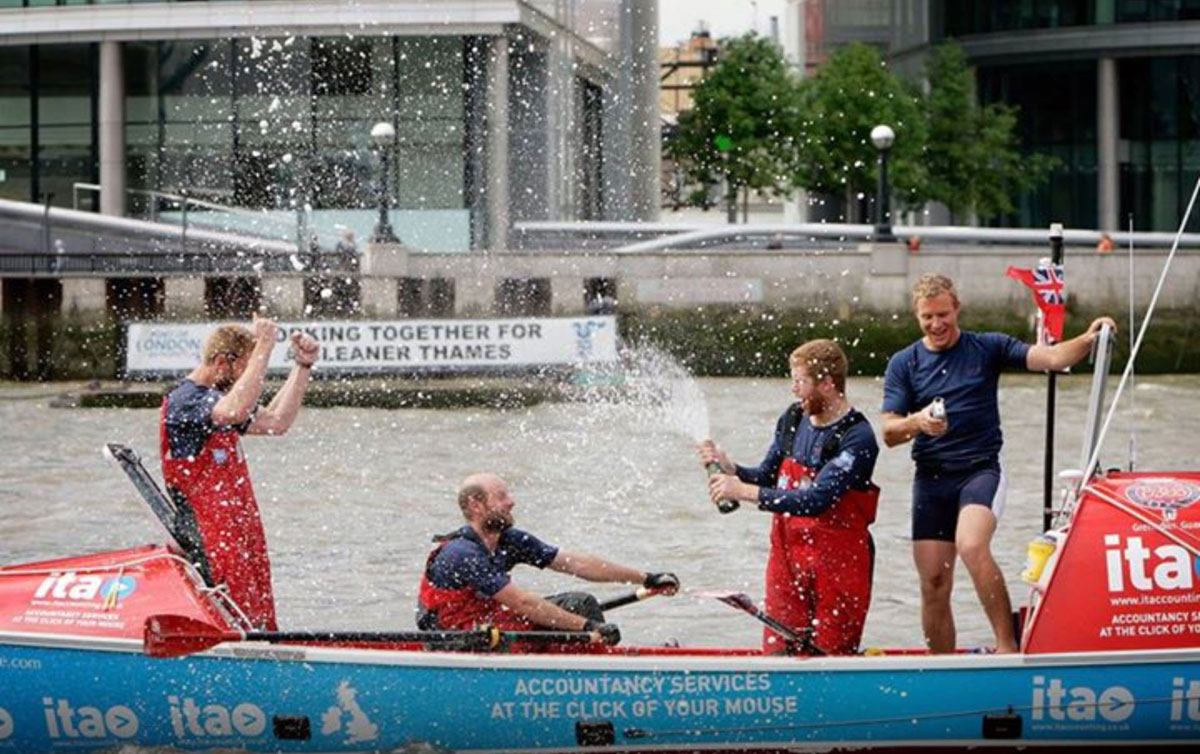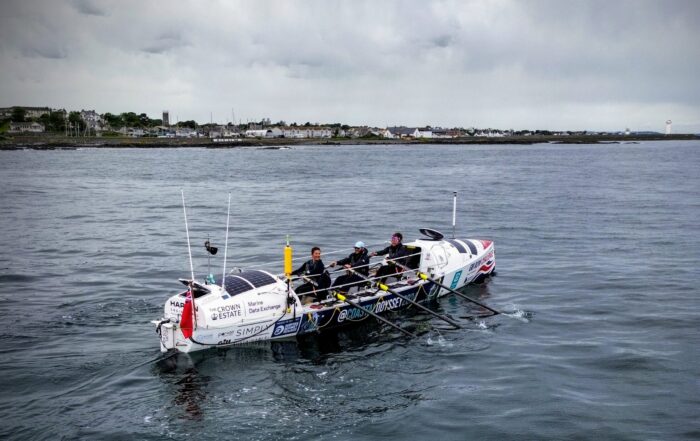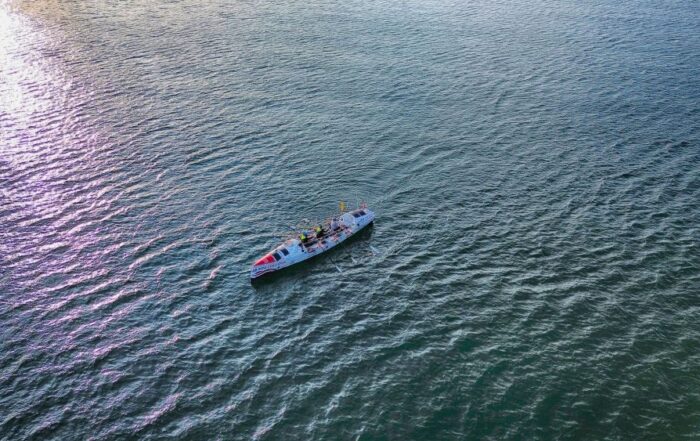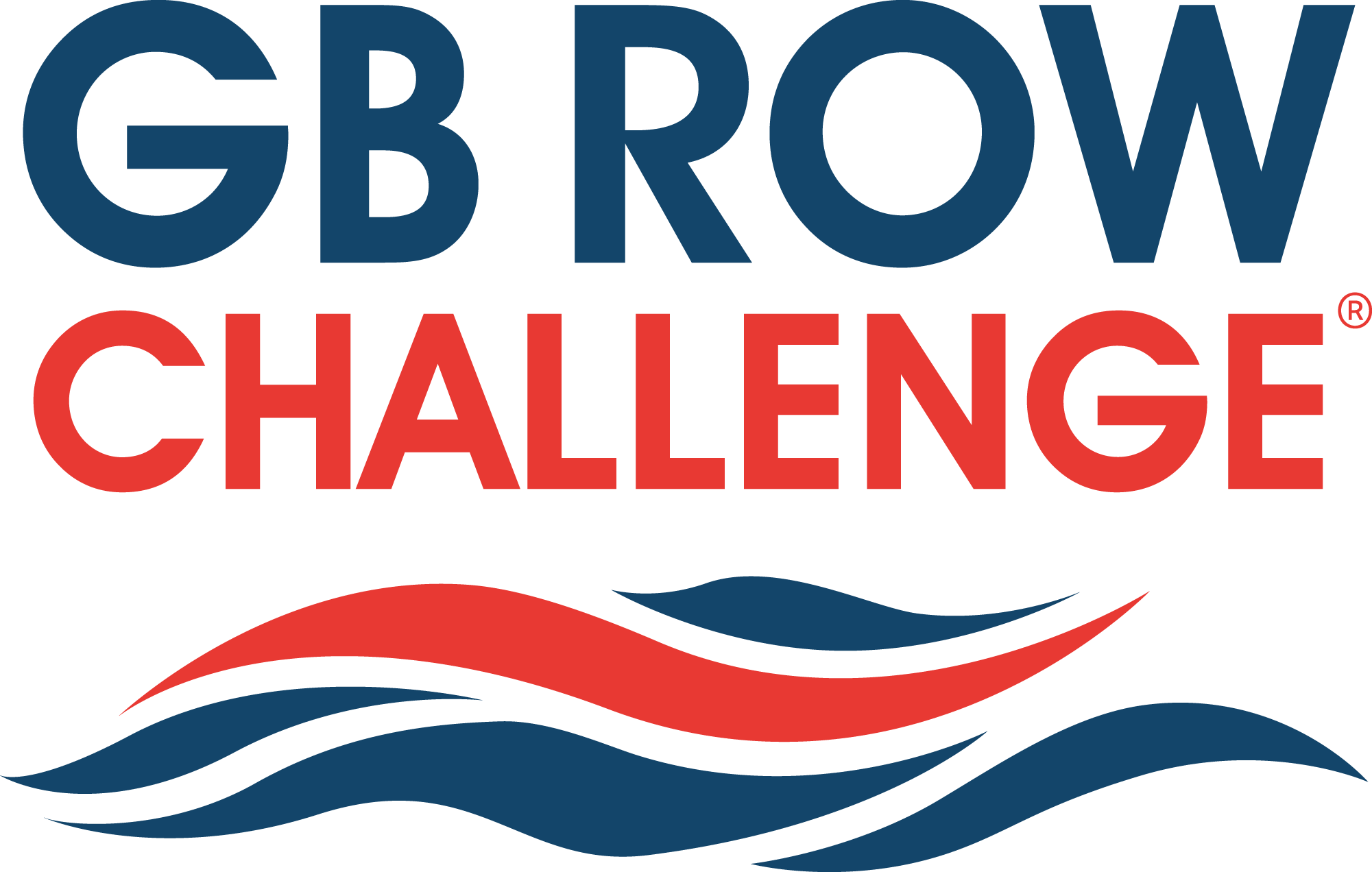An Extreme Rowing Challenge pushes your body and mind to the absolute limit. Whether you’re rowing around the UK coastline or tackling an endurance race across open waters, the preparation phase is just as important as the challenge itself. If you’re wondering how to train, what to expect, and how to finish strong, this guide will help you get ready.
Preparing for an extreme rowing challenge requires months of physical training, mental conditioning, and strategic planning. Your body must endure long hours of rowing, harsh weather, and unpredictable water conditions. Strength and endurance workouts, a solid nutrition plan, and proper hydration are essential. However, physical fitness alone isn’t enough. Mental toughness plays a huge role, your ability to stay focused, push through fatigue, and adapt to changing conditions will determine your success.
One of the biggest mistakes rowers make is underestimating the importance of technique and efficiency. Rowing for long distances isn’t just about strength, it’s about using energy wisely. Proper stroke technique reduces fatigue and prevents injury. If you’re new to endurance rowing, working with an experienced coach can make a big difference.
Equipment and logistics are also key factors. Your boat must be in top condition, stocked with safety gear, nutrition supplies, and navigation tools. Training on open water, testing your gear in real conditions, and learning survival skills will prepare you for the unpredictable nature of extreme rowing.
This guide will cover the essential steps you need to train, fuel your body, prepare mentally, and set up your boat for success. With the right preparation, you’ll be ready to take on the challenge and cross the finish line strong.
What Training Do You Need For An Extreme Rowing Challenge?
Training for an extreme Rowing Sport Challenge isn’t just about rowing for hours on end. It’s about building strength, endurance, and resilience while ensuring your body can handle the physical toll of long-distance rowing. The right training plan will improve your rowing efficiency, reduce injury risk, and help you maintain stamina throughout the challenge.
Building Rowing-Specific Strength: Rowing is a full-body sport, meaning your training should target legs, core, and upper body strength. Your legs drive the power in each stroke, your core keeps you stable, and your upper body helps with control and endurance.
- Leg strength: Squats, lunges, and leg presses help develop explosive power.
- Core stability: Planks, Russian twists, and hanging leg raises improve balance and prevent fatigue.
- Upper body endurance: Pull-ups, bent-over rows, and push-ups build strength for longer rowing sessions.
Endurance Training For Long-Distance Rowing: Even the strongest rower will struggle if they lack endurance. Since extreme rowing challenges can last for days or even weeks, cardiovascular fitness is critical. A combination of steady-state cardio (long, low-intensity sessions) and high-intensity interval training (HIIT) will help prepare your body for sustained effort.
- Rowing machine sessions: Aim for 60–90 minutes at a moderate pace, increasing weekly.
- Outdoor rowing: Train in real conditions to adapt to waves, wind, and long hours on the water.
- Cross-training: Cycling, swimming, and running improve cardiovascular fitness and reduce rowing-related strain.
Technique And Efficiency Matter: Many rowers make the mistake of focusing only on fitness, but proper technique is just as important. A well-executed stroke reduces wasted energy and lowers the risk of injury.
- Focus on smooth, controlled movements rather than raw power.
- Work with a rowing coach to refine your stroke.
- Practise rowing in different conditions to learn how to handle waves, wind, and currents.
Training With Your Team: If you’re rowing with a team, practising together is crucial. Learn how to synchronise your strokes, communicate effectively, and support each other during tough moments. Mental resilience often comes from knowing your team has your back.
Proper training takes time, but a well-structured plan will help you build the strength, endurance, and skill needed to complete your extreme rowing challenge successfully.

How To Build Endurance And Strength Before The Race
Building endurance and strength is essential for anyone taking on an extreme rowing sport challenge. Without the right physical preparation, the strain of long hours on the water can lead to exhaustion, injury, or an early withdrawal from the race. Training should focus on both muscular strength and cardiovascular endurance to keep you rowing efficiently from start to finish.
- Strength training for rowing power: Rowing is not just about arm strength; it engages the legs, core, and back. Leg power comes from exercises like squats, deadlifts, and lunges, which help generate force with each stroke. Core stability is critical for maintaining balance and preventing injury, so planks, hanging knee raises, and Russian twists should be part of your routine. Upper body endurance can be improved through pull-ups, bent-over rows, and resistance band exercises. Training three to four times a week with a progressive increase in intensity will help you build the power needed for long-distance rowing.
- Endurance training for long-distance performance: Rowing challenges require sustained effort over several hours or even days. To build endurance, a combination of steady-state and interval training is needed. Rowing machine sessions lasting 60 to 120 minutes at a moderate intensity will help develop stamina, while high-intensity interval training (HIIT) improves recovery speed and overall fitness. Cross-training activities like running, swimming, and cycling can boost cardiovascular capacity while reducing the risk of overuse injuries. Training in different water conditions, including rough waves and strong currents, will help prepare you for real race scenarios.
- Fueling your body for performance: Nutrition and hydration play a huge role in endurance sports. Carbohydrates such as oats, rice, and wholegrain pasta provide a steady release of energy, while protein from lean meats, fish, eggs, and plant-based sources aids in muscle recovery. Healthy fats like nuts, avocados, and olive oil support sustained energy levels. Staying hydrated is just as important as eating well, as dehydration can cause cramping and early fatigue. Drinking water regularly and replenishing electrolytes through sports drinks or natural sources like coconut water will help maintain performance.
Proper training, a structured diet, and a well-planned hydration strategy will help you stay strong throughout the challenge. By focusing on these areas, you’ll give yourself the best chance of pushing through tough moments and reaching the finish line with confidence.
Mental Preparation: Staying Focused In An Extreme Rowing Challenge
Taking on an extreme rowing sport challenge isn’t just about physical endurance, it’s a mental test as well. Rowing for hours or even days in tough conditions requires strong focus, resilience, and the ability to push through exhaustion. Mental preparation can be the difference between crossing the finish line or giving up when things get tough.
Building mental toughness through training: The best way to prepare mentally is to simulate race conditions in training. Long-distance rowing sessions will help you get used to fatigue and discomfort. Training in harsh weather, at night, or after exhausting gym sessions will build the mental strength needed to handle unpredictable conditions. Pushing past mental barriers in training will make it easier to stay focused when the real challenge begins.
Managing fatigue and stress on the water: Extreme rowing challenges push you to your limits, and knowing how to handle fatigue is crucial. Developing a strategy for managing energy levels can make a huge difference. Breaking the race into smaller sections, focusing on each stroke rather than the full distance, and maintaining a steady breathing rhythm will help you stay in control. Practising mindfulness techniques like deep breathing and visualisation can also help rowers stay calm and focused during high-pressure moments.
The importance of teamwork and communication: If you’re rowing with a team, strong communication is just as important as physical training. Disagreements, exhaustion, and pressure can lead to tension, so learning to work together effectively is key. Training with your team in different conditions will help build trust and ensure everyone is on the same page when challenges arise. Agreeing on a clear communication system before the race will make problem-solving much easier when you’re on the water.
Staying motivated during difficult moments: Every extreme rowing challenge will have low points when exhaustion, bad weather, or setbacks make finishing feel impossible. Having a strong reason for taking on the challenge will help keep you motivated. Setting personal goals, remembering why you started, and having mental strategies to push through tough moments can make all the difference. Many rowers find that repeating a personal mantra or focusing on the next small milestone rather than the full distance helps keep them going.
Mental preparation is just as important as physical training. By training your mind to stay focused, handle stress, and push through discomfort, you’ll improve your chances of completing the challenge successfully.

What To Pack And How To Prepare Your Boat For The Challenge
Packing the right gear and ensuring your boat is in top condition can make or break an extreme rowing challenge. When you’re out on the water for days or even weeks, every item on board plays a role in your success. Careful planning will help you stay safe, comfortable, and prepared for any situation.
- Essential gear for long-distance rowing: Having the right equipment is crucial for endurance rowing. A well-fitted life jacket and safety harness should always be worn to reduce risks. Waterproof clothing, thermal layers, and gloves will protect against harsh weather. A dry bag for storing personal items and spare clothes is essential, as is a first-aid kit with basic medical supplies for treating blisters, cuts, and muscle soreness. A satellite phone or VHF radio will ensure you can call for help in case of an emergency.
- Food and hydration supplies: Rowing burns a huge amount of calories, so packing high-energy, nutrient-dense food is essential. Lightweight, easy-to-eat meals such as protein bars, nuts, dried fruit, and instant oats will keep energy levels up. Dehydration can quickly lead to fatigue, so carrying enough fresh water or a reliable water filtration system is vital. Electrolyte supplements will help prevent cramping and maintain performance.
- Boat maintenance and safety checks: Before starting the challenge, your boat must be fully inspected for any signs of wear or damage. Checking the hull for cracks, ensuring the oars are in good condition, and making sure all rigging is secure will prevent mechanical failures during the race. A backup set of oars and repair tools should always be on board. Testing all safety equipment, including navigation lights, life rafts, and distress signals, is essential for peace of mind.
- Organising your gear efficiently: Space on a rowing boat is limited, so every item must be stored carefully. Heavier gear should be placed low and central to keep the boat balanced, while frequently used items should be within easy reach. Labelling dry bags and keeping emergency supplies accessible will save time and reduce stress in difficult moments.
Proper preparation will help you focus on rowing rather than worrying about equipment failures or missing essentials. By packing smart and keeping your boat in top condition, you’ll give yourself the best chance of completing your extreme rowing sport challenge safely and successfully.
Crossing The Finish Line: How To Complete The Challenge Strong
Finishing an extreme rowing challenge is about more than just reaching the end, it’s about managing your energy, staying focused, and pushing through the toughest moments. The final stages of the race will test your endurance, but with the right mindset and preparation, you can cross the finish line feeling strong.
As fatigue sets in, keeping a steady pace is key. Many rowers make the mistake of pushing too hard too soon, only to burn out before the end. Conserving energy by focusing on efficient strokes and controlled breathing will help you maintain strength when it matters most. Small, regular meals and consistent hydration will also keep your body fuelled for the final push.
The last stages of a long-distance rowing challenge can be the hardest mentally. Doubt, exhaustion, and unpredictable conditions can make you want to stop. This is where mental preparation pays off. Breaking the remaining distance into smaller goals, focusing on one stroke at a time, and reminding yourself why you started will help keep you motivated. If you’re rowing as a team, supporting and encouraging each other will make a huge difference in keeping spirits high.
Whether you’re aiming to set a record, complete a personal goal, or simply survive the challenge, reaching the end is a huge achievement. The moment you cross that finish line, every hour of training, every difficult moment on the water, and every sacrifice will be worth it.
At GB Row Challenge, we know the dedication it takes to complete an endurance rowing race. If you’re ready to take on this challenge, we can help you prepare, train, and finish strong. Get in touch today on +44 (0) 7810 493081 and take the first step towards your extreme rowing challenge.
Qualifications Needed To Partake In A Rowing Challenge
These are the qualifications or training requirements to take part in a GB Rowing Sport or Challenge;
Skipper
- Skippers require experience, therefore GB Row Challenge stipulates team Skippers must have the following Royal Yachting Association (R.Y.A.) qualifications; R.Y.A Day Skipper, Theory and Practical Sailing with experience, R.Y.A Coastal Yacht Master Offshore theory.
First mate
- R.Y.A Day Skipper Theory ideally supported with R.Y.A Day Skipper Practical.
All Crew to hold
- R.Y.A Sea Survival course, all crew members are required to attend this course.
- R.Y.A VHF / SRC (Short Range Certificate) Radio course, all crew members must have his qualification.
- R.Y.A Essential Navigation, all crew members must have this qualification.
2 x Crew Members
- R.Y.A First Aid at sea course, 2 x crew members must hold this qualification.
Training Rows
- Teams must complete a minimum of 200 hrs at sea in the boat which includes a 4 night, 5 day row along the south coast.
GB Row Challenge
GB Row Challenge is ‘The World’s Toughest Rowing Race’, and so it has the highest crew qualification and training requirements of any Ocean Rowing Challenge which helps provide teams who enter the best possible chance of completing the circumnavigation of Great Britain.
Share This Story, Choose Your Platform!
Recent Posts
The Crown Estate joins GB Row Challenge as lead environmental data partner
The Crown Estate has partnered with GB Row Challenge, the endurance rowing race which collects vital scientific data on the health of UK coastal waters. GB Row Challenge, described as ‘the world’s toughest rowing race’, [...]
Study reveals how much UK seas have warmed in a year
UK seas were, on average, 0.39°C warmer in 2023 compared to 2022, a report by the University of Portsmouth and GB Row Challenge has found. Some regions, including the Celtic and Irish Seas and the northern North [...]





